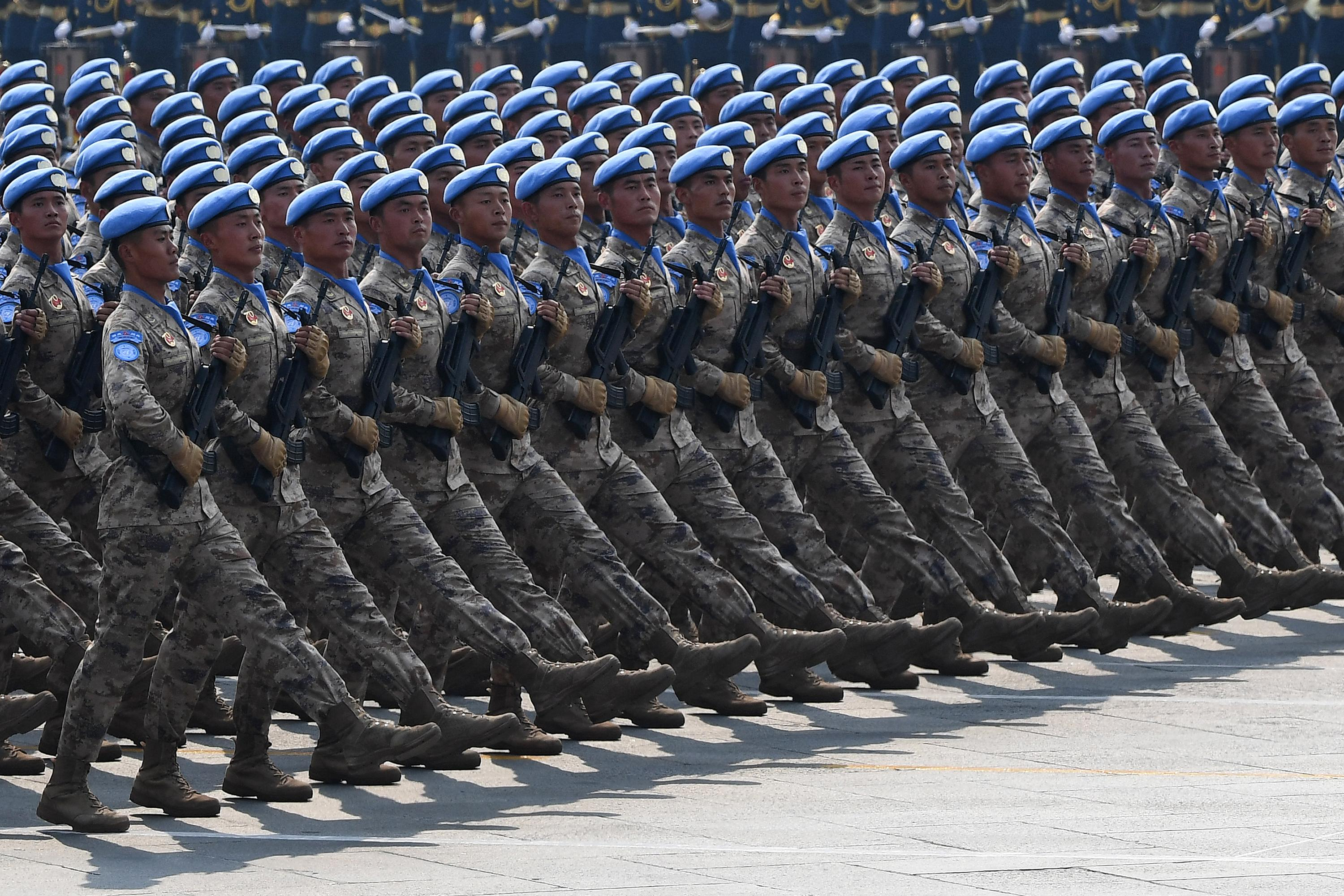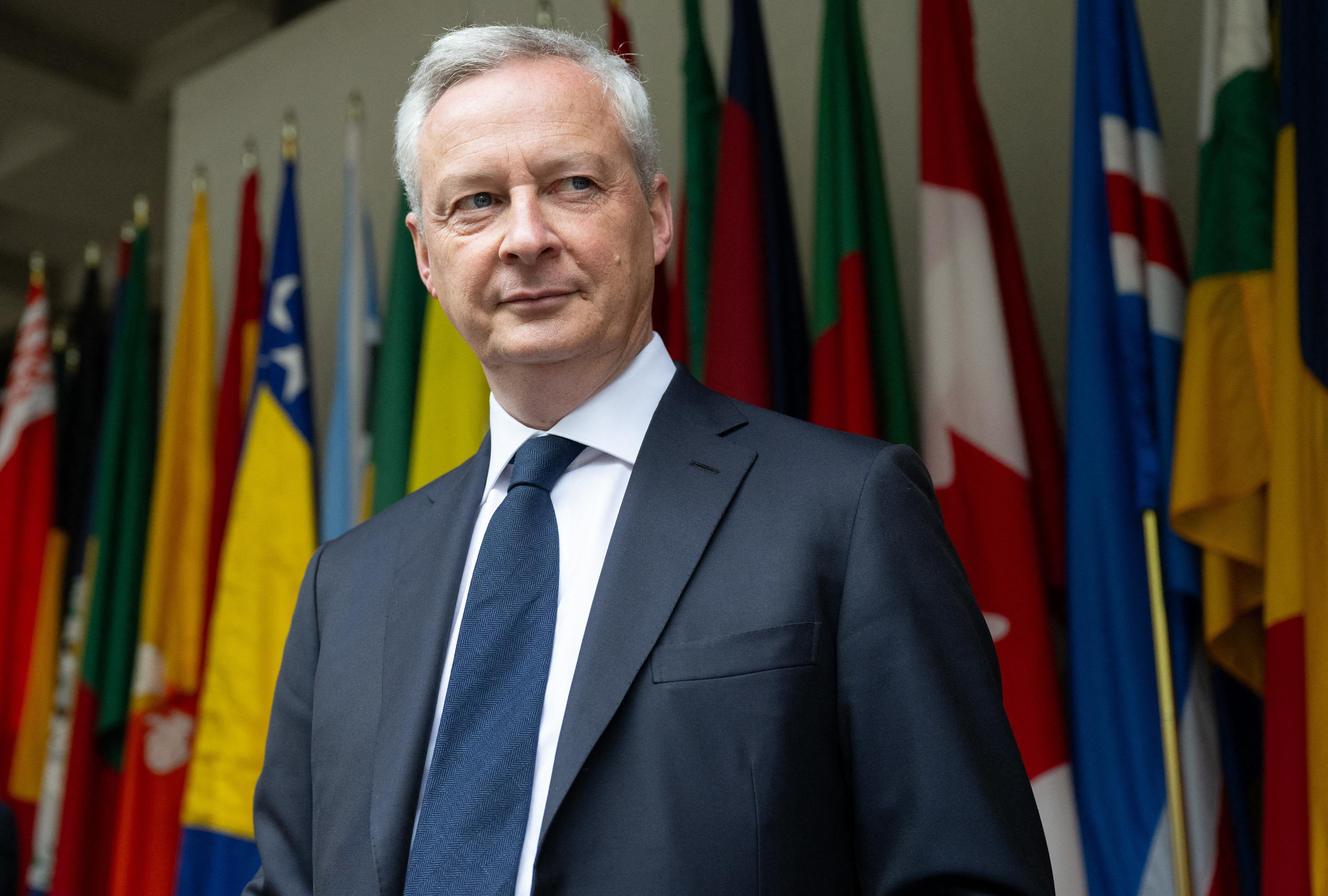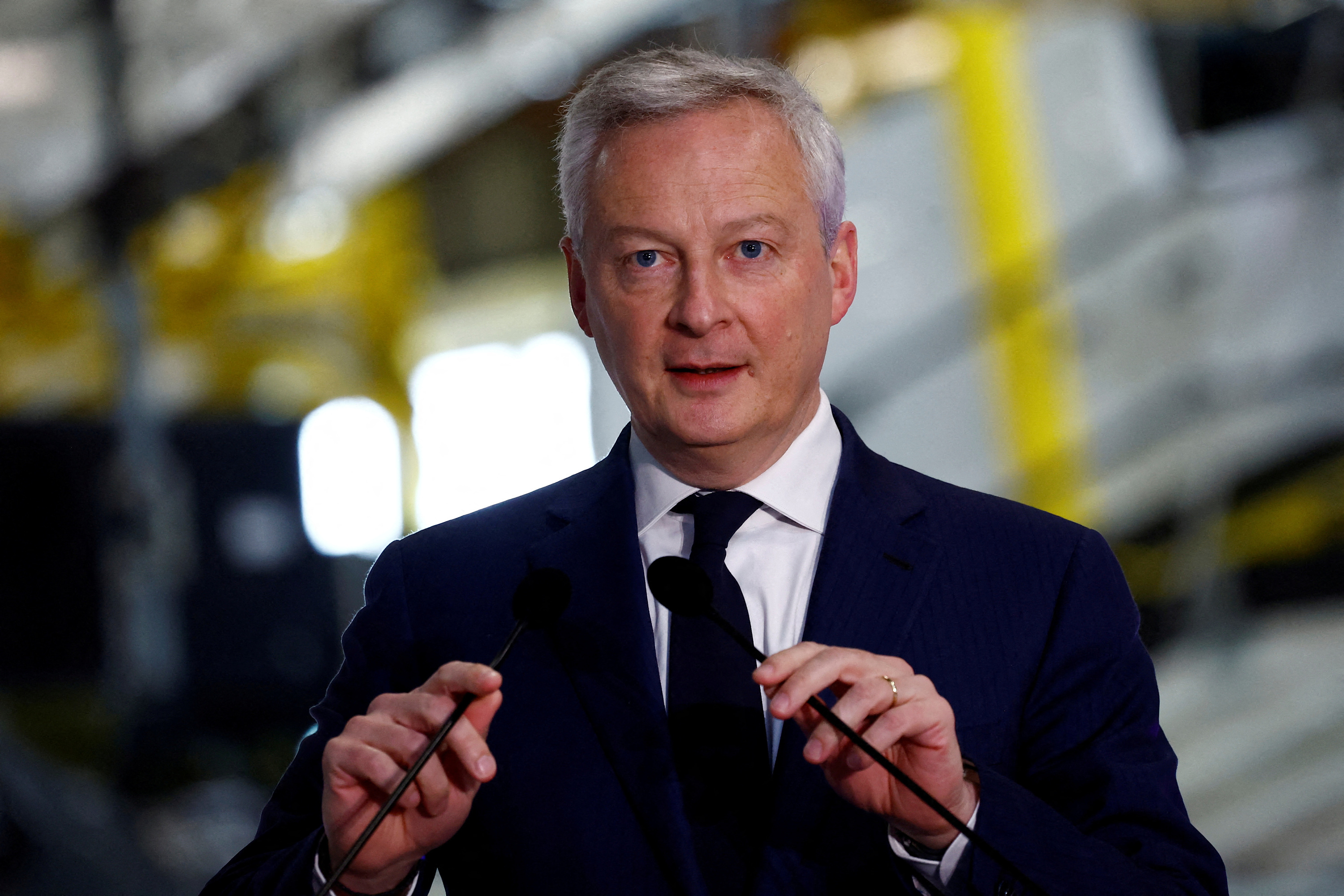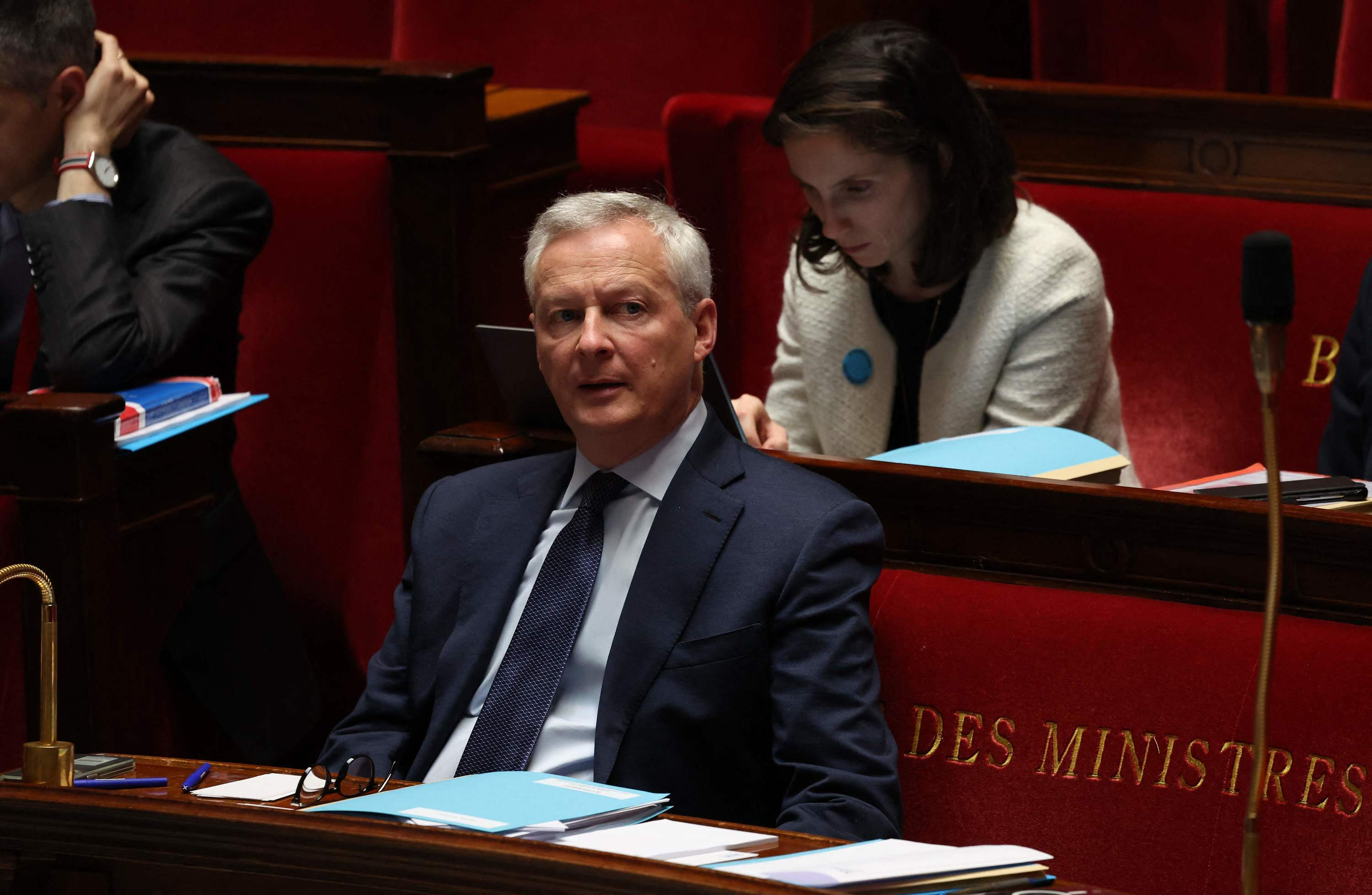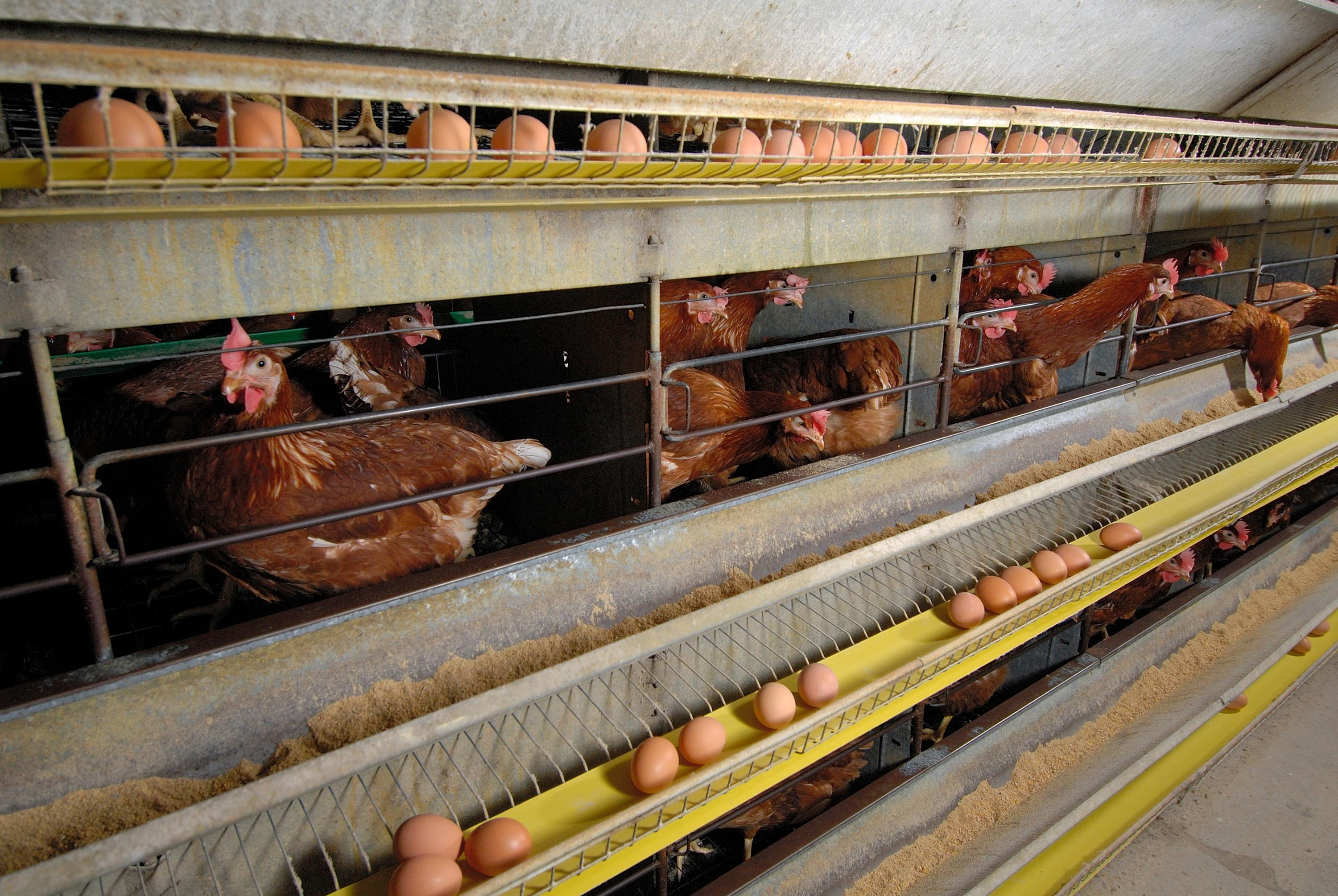Doctor in Political Science and International Relations, Marc Julienne is a researcher at the French Institute of International Relations (IFRI), responsible for China activities within the Asia Center, and teaches at INALCO.
LE FIGARO. - Saturday January 13, Taiwan votes to elect its new president. Lai Ching-te, candidate of the ruling party, is favored in the polls. How is this election viewed in China?
Marc JULIENNE. - China has no real ally among the Taiwanese presidential candidates, but it favors the candidates who least serve its interests, that is to say the parties which do not support independence. To do this, it puts political and military pressure on the island, to dissuade both the pro-independence party from moving forward on this path, and voters from supporting this party. In a more coercive manner, China is deploying a strategy of disinformation in Taiwanese society and on social networks, spreading rumors and false information about the Progressive Democratic Party and its national and local candidates.
At the end of August, China launched military maneuvers around Taiwan as a “stern warning” following a visit by Taiwan Vice President William Lai to the United States. In retrospect, how can we understand this event?
At each meeting between very senior Taiwanese and American officials, Beijing strongly demonstrates its discontent through military exercises. These are also opportunities for the Chinese army to carry out larger-scale maneuvers than usual. Already in April 2023, President Tsai Ing-wen made a stopover in the United States, in California, to meet the new Speaker of the House of Representatives, Kevin McCarthy. China then launched major air and naval exercises in the strait, just as French President Emmanuel Macron was completing a state visit to the country.
In the same vein, the largest Chinese military deployment around Taiwan in history followed Nancy Pelosi's visit to Taipei in August 2022. It must nevertheless be kept in mind that Chinese military activities in the Strait and around Taiwan are daily, and not limited to these international meetings.
How is China increasing its military capabilities? Is Taiwan a goal for her?
China has two main objectives in terms of military capabilities. The first is to fill certain gaps to strengthen its projection capabilities: in-flight refueling tankers, amphibious ships, anti-submarine warfare. This equipment is all the more a priority as it is essential for a possible offensive on Taiwan. The second objective is the qualitative upgrade of an army which is very numerous but very unequal and largely inexperienced in combat.
Also read: When the setbacks of the Russian army in Ukraine make the Chinese think about Taiwan
Xi Jinping has already deemed “reunification” with Taiwan “inevitable”. For his wishes, he renewed his desire to annex the island. What are Beijing's other options?
Xi Jinping's options are dwindling. Taiwanese identity is progressing inexorably in Taiwan. With it, the desire for unification with the continent is reduced, especially deterred by ideological radicalization in Popular China. Time is therefore no longer on Beijing's side. In addition, his proposal to apply the “one country, two systems” principle to Taiwan – until now attributed to Hong Kong with the success that we know – is unanimously rejected on the island and fuels even more mistrust.
China has announced for several years that it wants to annex Taiwan. Why hasn’t she done it yet? Is she waiting for a special event?
The essential objective of the Communist Party is unification, peacefully if possible, by force if necessary. Not only is the military option not a priority, but it is very risky in the short term due to the army's capacity gaps. However, Xi Jinping displays a much more bellicose speech and actions than in the past which should encourage us to seriously observe the evolution of cross-Strait relations.

 What is chloropicrin, the chemical agent that Washington accuses Moscow of using in Ukraine?
What is chloropicrin, the chemical agent that Washington accuses Moscow of using in Ukraine? Poland, big winner of European enlargement
Poland, big winner of European enlargement In Israel, step-by-step negotiations for a ceasefire in the Gaza Strip
In Israel, step-by-step negotiations for a ceasefire in the Gaza Strip BBVA ADRs fall almost 2% on Wall Street
BBVA ADRs fall almost 2% on Wall Street Sánchez cancels his agenda and considers resigning: "I need to stop and reflect"
Sánchez cancels his agenda and considers resigning: "I need to stop and reflect" The Federal Committee of the PSOE interrupts the event to take to the streets with the militants
The Federal Committee of the PSOE interrupts the event to take to the streets with the militants Repsol: "We want to lead generative AI to guarantee its benefits and avoid risks"
Repsol: "We want to lead generative AI to guarantee its benefits and avoid risks" Osteoarthritis: an innovation to improve its management
Osteoarthritis: an innovation to improve its management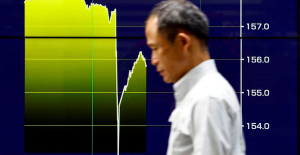 The yen jumps 3% then falls again, amid speculation of Japanese intervention
The yen jumps 3% then falls again, amid speculation of Japanese intervention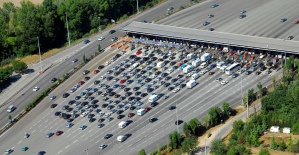 A very busy Friday on the roads of Île-de-France before the Ascension Bridge
A very busy Friday on the roads of Île-de-France before the Ascension Bridge Fraud: the government is preparing new measures for the fall
Fraud: the government is preparing new measures for the fall Nike breaks the bank to keep the Blues jersey
Nike breaks the bank to keep the Blues jersey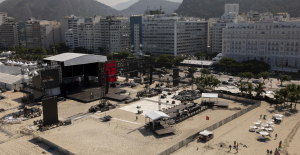 Madonna ends her world tour with a giant - and free - concert in Copacabana
Madonna ends her world tour with a giant - and free - concert in Copacabana Harry Potter: Daniel Radcliffe “really saddened” by his final breakup with J.K. Rowling
Harry Potter: Daniel Radcliffe “really saddened” by his final breakup with J.K. Rowling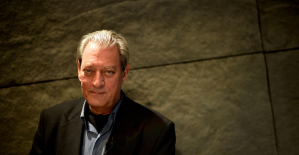 Leviathan, New York Trilogy... Five books by Paul Auster that you must have read
Leviathan, New York Trilogy... Five books by Paul Auster that you must have read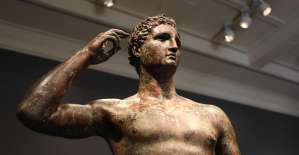 Italy wins a decisive round against an American museum for the restitution of an ancient bronze
Italy wins a decisive round against an American museum for the restitution of an ancient bronze Omoda 7, another Chinese car that could be manufactured in Spain
Omoda 7, another Chinese car that could be manufactured in Spain BYD chooses CA Auto Bank as financial partner in Spain
BYD chooses CA Auto Bank as financial partner in Spain Tesla and Baidu sign key agreement to boost development of autonomous driving
Tesla and Baidu sign key agreement to boost development of autonomous driving Skoda Kodiaq 2024: a 'beast' plug-in hybrid SUV
Skoda Kodiaq 2024: a 'beast' plug-in hybrid SUV The home mortgage firm rises 3.8% in February and the average interest moderates to 3.33%
The home mortgage firm rises 3.8% in February and the average interest moderates to 3.33% This is how housing prices have changed in Spain in the last decade
This is how housing prices have changed in Spain in the last decade The home mortgage firm drops 10% in January and interest soars to 3.46%
The home mortgage firm drops 10% in January and interest soars to 3.46% The jewel of the Rocío de Nagüeles urbanization: a dream villa in Marbella
The jewel of the Rocío de Nagüeles urbanization: a dream villa in Marbella Europeans: a senior official on the National Rally list
Europeans: a senior official on the National Rally list Blockade of Sciences Po: the right denounces a “drift”, the government charges the rebels
Blockade of Sciences Po: the right denounces a “drift”, the government charges the rebels Even on a mission for NATO, the Charles-de-Gaulle remains under French control, Lecornu responds to Mélenchon
Even on a mission for NATO, the Charles-de-Gaulle remains under French control, Lecornu responds to Mélenchon “Deadly Europe”, “economic decline”, immigration… What to remember from Emmanuel Macron’s speech at the Sorbonne
“Deadly Europe”, “economic decline”, immigration… What to remember from Emmanuel Macron’s speech at the Sorbonne These French cities that will boycott the World Cup in Qatar
These French cities that will boycott the World Cup in Qatar Mercato: Verratti at Barça? A track studied
Mercato: Verratti at Barça? A track studied Rugby: after the defeat during the Six Nations, the Blues will meet the English in September for a test match
Rugby: after the defeat during the Six Nations, the Blues will meet the English in September for a test match Premier League: Liverpool unveils its new jersey for next season
Premier League: Liverpool unveils its new jersey for next season Formula 1: Alpine holds its new executive technical director
Formula 1: Alpine holds its new executive technical director